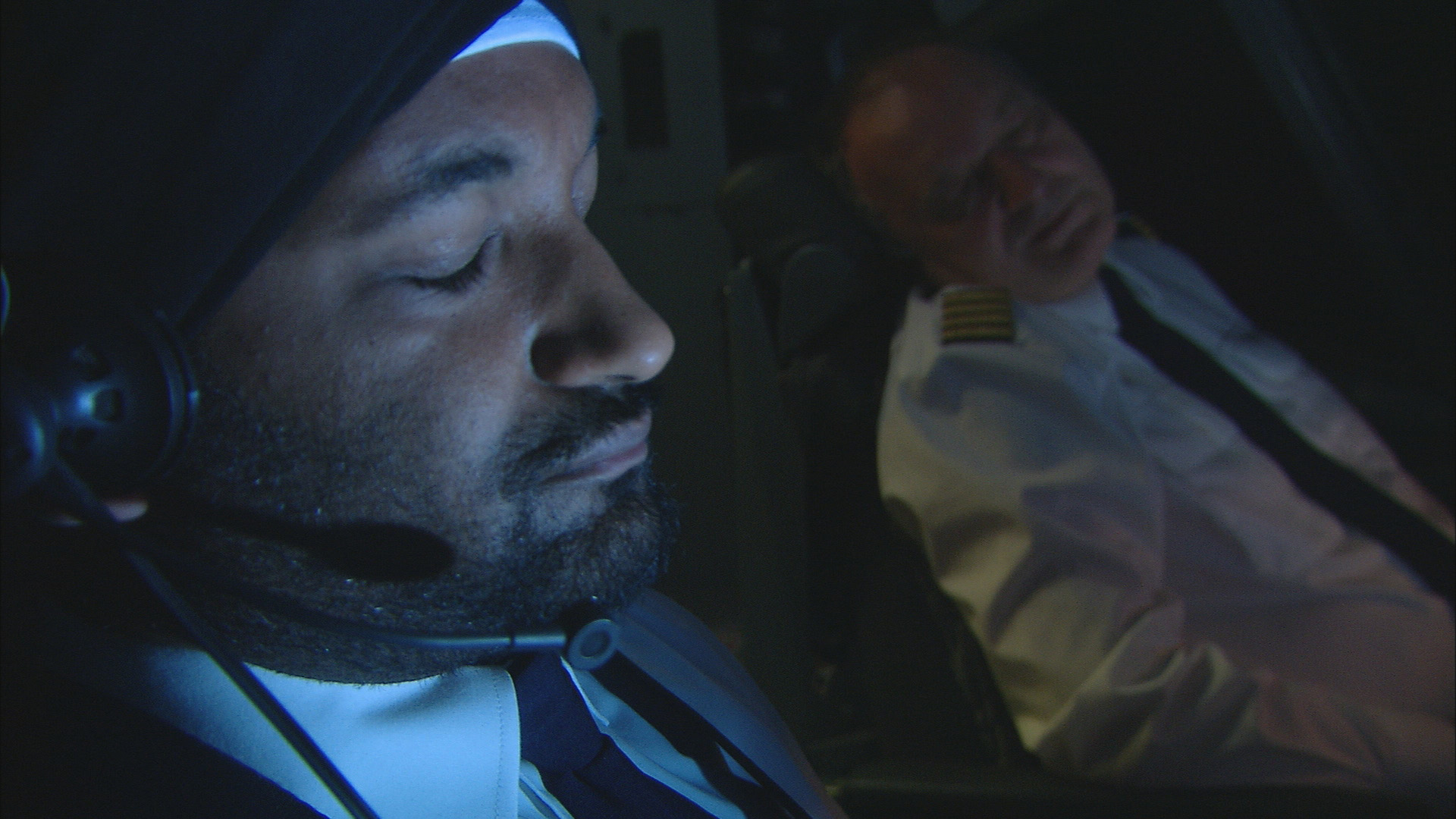There was a saying among Air Force commanders, back in the days when I was one, that goes like this: "Do not fall on your sword. But if you do, don't miss."
— James Albright

Updated:
2021-09-15
Falling on one's sword meant figuratively killing one's career by sticking to one's principles against more senior commanders. It rarely goes well and commanders should find other ways to get their points across. But when deciding to fall on one's sword, the second part of the saying tells us, it is important to do so in a way that puts the principle in question into focus for those who remain.
I did this once as an Air Force commander and was fortunate to have survived, though there was a lot of collateral damage. I do not recommend the experience. I've repeated this as a civilian twice. I survived the first time but got fired the second time around.
The lesson here is this: if you can make your point without falling on your sword, that is what you should do. But if lives are a stake and everything short of sword falling has failed, your call to action might be unavoidable. This may also be true if we are talking about fighting acts that are illegal, immoral, or unethical.

1
Sepuku
Though most of us associate sword falling with medieval knights, I think the term probably comes from the Japanese idea of "Seppuku" which literally means "cutting the belly." Having grown up with a large dose of Japanese samurai films, I knew it as "harakiri," which was normally done with the samurai's own sword and always in public.
Seppuku was required of samurai who failed to protect their masters or otherwise disgraced themselves. It was a way of restoring honor to their names.
Regardless of where the idea of sword falling comes from, it is thought of as an act of honor that ends with the death of one's career.
2
Examples I've experienced or heard
Personal examples
"Do not fall on your sword," we are told as military leaders. But there are times we have no other options. As a squadron commander I was ordered to allow unqualified pilots to fly operational missions and I refused. Many other commanders before me and after me did not think this worthy of sword falling and the system continues as before. The system later vindicated me and I was given a better job and allowed to continue. But the system continued as before. So, in effect, I fell on my sword and missed.
Years later, in my first civilian job, our flight department was ignoring company flight and duty limits, requiring very long days from its crews. I did this on my first international trip with them, not realizing it was to be an 18 hour duty day. I refused to fly these trips in the future and was told they could not allow me to fly only the shorter trips while the other pilots took on heavier burdens. I set about looking for another job and got hired by an airline. In the meantime the rest of the pilots figured out what I had done and six of the eight got behind me and also refused the longer trips. The company had no choice but to start staging crews and dividing the long trips into two-crew events. The flight department manager was surprised the company didn't even notice the change to our procedures.
Far too common corporate flight department examples
At least once a year, I am contacted by a pilot who is faced with several of the following "sword falling worthy" events:
- Company does not have a flight operations manual, or equivalent.
- Company falsifies D095 authorization (aircraft-type generic MEL) to appear to be a D195 authorization (aircraft-specific MEL) to satisfy international aviation requirements. Or flies internationally without an MEL and simply risks it.
- Company requires excessive flight or duty times.
- Company requires flight below IFR minimums.
- Company prohibits the documentation of maintenance squawks.
- Company uses unauthorized aircraft parts or uses unapproved vendors.
- Company permits and encourages deviations from aircraft manufacturer standard operating procedures.
- Company is flying in airspace requiring special authorizations without the authorizations.
An example from outside aviation
Geoff was an electrical engineer at Midwest Industrial Circuit Boards Company where he specialized in circuit board test equipment. “Midwest Indy” was a large company of about 500 employees. Geoff’s division of 50 engineers and technicians worked well together, and the company prospered. After almost ten years, their division manager got promoted and reassigned to another division, located in another state. Though Geoff had never held a management position, he agreed to take over. By all accounts, he thrived in the position and morale in the division had never been higher. One of their top products was a digital circuit board microscope that allowed users to examine circuit boards using a 6” x 6” screen which used an elevated camera that was aimed with controls on floor mounted foot pedals. This freed up the operator’s hands to use heat guns, soldering irons, tweezers, and test probes. The scope was a hit with customers and the only complaint had been about the small 6” x 6” screen, which limited how much of the circuit board the operators could view without constantly scrolling the camera with the foot pedals. But for a reason unknown to Geoff while he was an engineer on the floor, Midwest Indy said upgrading the screen was not cost effective.
Once Geoff took over, he found a stack of letters from several customers pleading for an upgrade to the scope’s screen as well as a proposal from a screen manufacturer to upgrade the screen to 12” x 15”, large enough so that the control pedals could be eliminated. Geoff set his team to work and within a few weeks they redesigned the circuit board scope and because the new larger screens were less expensive and the intricate pedal system was eliminated, the price of the upgraded system was less than the original, more cumbersome system.
Customers were ecstatic and sales tripled, as users of the older system raced to upgrade. Everyone was happy except the supplier of the older screens, Acme Screens Plus, who complained to Geoff, saying he had an exclusive deal with Midwest Indy and that the new scope would have to be discontinued. Geoff researched the original Acme Screens Plus contract and found no such exclusive provision and reported the incident to upper management at Midwest Indy.
After laying out the facts to upper management, Geoff was told the Midwest Indy CEO said their relationship with Acme Screens Plus was too important to jeopardize. As a result, he ordered the new unit be shelved and the old unit be restored to the product line.
Geoff felt he had no choice but to resign. The company was stunned but agreed to his departure with no severance or other financial compensation. Geoff was hired by another company in the local area as a line engineer. He liked the new job but missed he old job managing a team of dedicated engineers.
A year later, Midwest Indy was bought out by a competitor who audited each division. They discovered the great success of the scope with the larger screen and then the loss of business when the old scope was restored to the product line. The new owners ordered the larger screen scope be restored to the product line. They then called Geoff, offering him his former management position with an increase in pay.
Geoff fell on his sword, did not miss, and was resurrected for his good deeds.
3
How to fall on your sword and survive
Why?
Flying is an inherently dangerous activity and following standard operating procedures and industry best practices is the best way to minimize the risk. Not doing that can result in death, obviously. But short of that, it can also cost you your license.
Short of sword falling
Depending on how much of a "by the book" aviator you have been in the past, it may be difficult to start. "Why can't you ___ today when you didn't have a problem doing ____ yesterday?" The answer is, "I have been worried about it for a while and decided I can't do ___ anymore."
Establishing a reputation as one who doesn’t cut corners and refuses to break the rules will make you unpopular. But it may end up unearthing allies you didn't know you have. I once found out that the flight department's leadership was simply unaware of the problem and just having one pilot say no was enough to cause them to make the change.
Assuming you've done everything possible inside the system to affect change and were unsuccessful and have decided to "fall on your sword," what do you do next?
Falling on your sword
Unless the situation is so dire that you have no other options, you need to continue flying as before while staying as safe and legal as possible.
You need to find another job. It will probably involve a pay cut and may require you to move or to commute. But sword falling is rarely neat and convenient. Do this without announcing your intentions to your current employer. While interviewing, don't mention the unsafe and illegal acts to your prospective employer. Doing so you will make you come off as a whiner at best, or as a potential troublemaker. You are leaving the job because you need new challenges, etc.
Once you find another job, give your current employer adequate notice and be respectful. Ask for an exit interview but if they say no, move on. There is only so much you can do.
If you are working for a commercial operator
Air carriers and their contractors and subcontractors are prohibited from retaliating against employees for reporting alleged violations of Federal laws related to aviation safety or engaging in other protected activities. For more about this: https://www.osha.gov/sites/default/files/publications/factsheet-whistleblower-aviation-industry.pdf.
Not missing
The act of "not missing" means if you are going to risk career suicide, you need to make it better for those who remain behind or who will follow you.
I once refused a military mission because it was planned without our required safety protocols. The commanders accepted a weekly mission to fly a heavily loaded Boeing 707 from March Air Force Base, near Riverside, California. They failed to consider the needed climb gradient after losing an engine when departing to the north. I was gone at a 3-month long school when the mission started and nobody bothered checking. I discovered the error the day before my first try at the mission and let the squadron know they had a problem. The commander said the mission was already accepted and they had been flying it for more than a month. I said no. He had no choice but to back down and tell our squadron's bosses the mission had to be changed. I won the battle but he made it his mission in life to get rid of me. And he did. I fell on my sword but the mission changed and we no longer had to fly with the idea we would be unable to out-climb the mountains if we lost an engine.
It may be that falling on your sword does nothing but tell senior leadership there is a problem and that might be enough. It may also remove the sword altogether.
A pilot I spoke with a few years ago was leaving because the company was flying internationally without any LOAs. (Not a single one!) She found another job and gave them the required notice. The company said the authorizations were too expensive. She brought up the fact they were risking having the aircraft impounded in Europe. They asked her to stay on, said she would have their support in getting the necessary authorizations, and even bumped up her salary.
Despite good results now and then, falling on your sword usually means having to look for a new job and possibly a cut in pay. A friend of mine was a young copilot in a very large management company where everyone involved looked the other way when it came to a pilot who refused to follow any standard operating procedures. That pilot eventually died in a crash he caused, taking a few passengers with him. My friend will have that on his conscious forever. Perhaps falling on his sword back then could have saved those lives.
These things are rarely cut and dried and you will be filled with doubt. But if you don't do anything, what will the consequences be?


